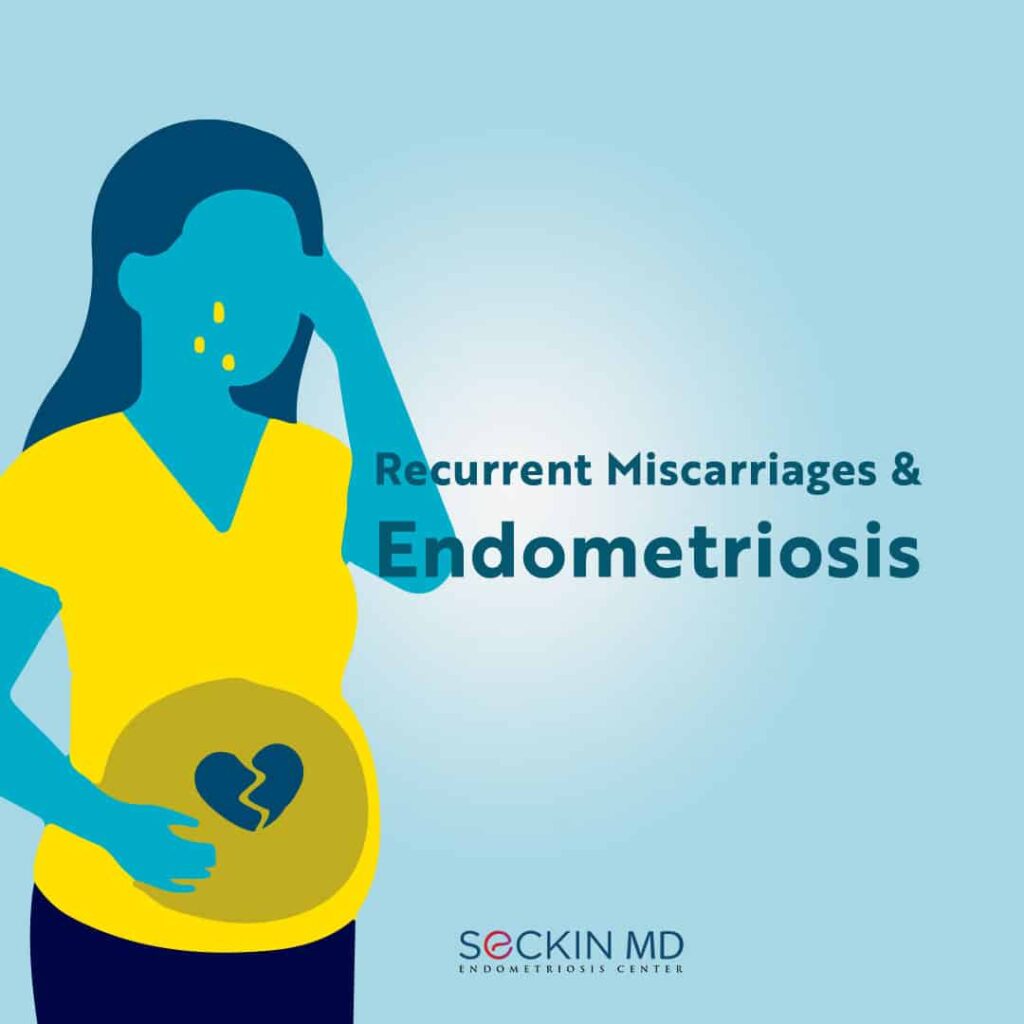Recurrent Miscarriages and Endometriosis

A miscarriage, also known as spontaneous abortion, is a loss of pregnancy before the 20th week of gestation. Researchers think that about 10-25% of all pregnancies end up in miscarriage. Could there be a link between recurrent miscarriages and endometriosis?
Recurrent miscarriages, why do they happen?
Miscarriages can be recurrent due to various reasons. In a study conducted on women who have had children, 43% had experienced one or more first-trimester miscarriages. One in every 17 of the women had experienced three or more miscarriages.
There are many factors that can increase the risk of miscarriage. These include advanced age, previous pregnancy loss, uterine anomalies, poor health conditions (e.g. uncontrolled diabetes, obesity), infections, stress, and smoking during pregnancy.
Can endometriosis increase the risk of miscarriages?
Endometriosis is the growth of endometrial-like tissue in areas of the body other than the uterus. Some of the ways in which endometriosis can affect fertility and contribute to miscarriage include:
- poor egg quality
- anatomical changes in the uterus and uterine lining
- scarring and adhesions in the fallopian tubes
- chocolate cysts in the ovaries
- inflammation due to high levels of cytokines
What does the research say?
Several studies have attempted to establish a consensus on the relationship between endometriosis and miscarriages.
For example, a 2016 study examined 478 pregnancies with histologically proven endometriosis and 964 unaffected pregnant women. It showed that the miscarriage rate was significantly higher in women with endometriosis (20%) than in the controls (12%). Those with a previous history of infertility had even higher miscarriage rates (50%) compared to those who didn’t (30%).
A meta-analysis of studies comparing pregnant women with endometriosis to those without, revealed that endometriosis can be a significant risk factor for miscarriages.
Similarly, another retrospective observational study in 268 pregnant women of reproductive age also showed higher rates of miscarriage in those with endometriosis (35.8%) compared to healthy controls (22%). The study concluded that superficial lesions in mild endometriosis can lead to an inflammatory situation that affects egg maturation, fertilization, and implantation.
What can I do to improve my chances of a healthy pregnancy?
If you experience severe pain with periods, pain with intimacy, or have difficulty conceiving, please seek advice early from a specialist.
If the specialist suspects you may have endometriosis, surgery with laparoscopic deep excision surgery may reduce the risk of miscarriage. Using this technique, a skilled surgeon can remove all visible and deep-infiltrating lesions and evaluate the uterus. Surgery can also help reduce inflammation and restore anatomy.
We have seen many patients go on to have healthy normal pregnancies following the surgery.
Have you been suffering from recurrent miscarriages? Please do not hesitate to share your experience by leaving a comment on our post on Facebook or Instagram if you wish to.
Get a Second Opinion
Our endometriosis specialists are dedicated to providing patients with expert care. Whether you have been diagnosed or are looking to find a doctor, they are ready to help.Our office is located on 872 Fifth Avenue New York, NY 10065.
You may call us at (646) 960-3080 or have your case reviewed by clicking here.